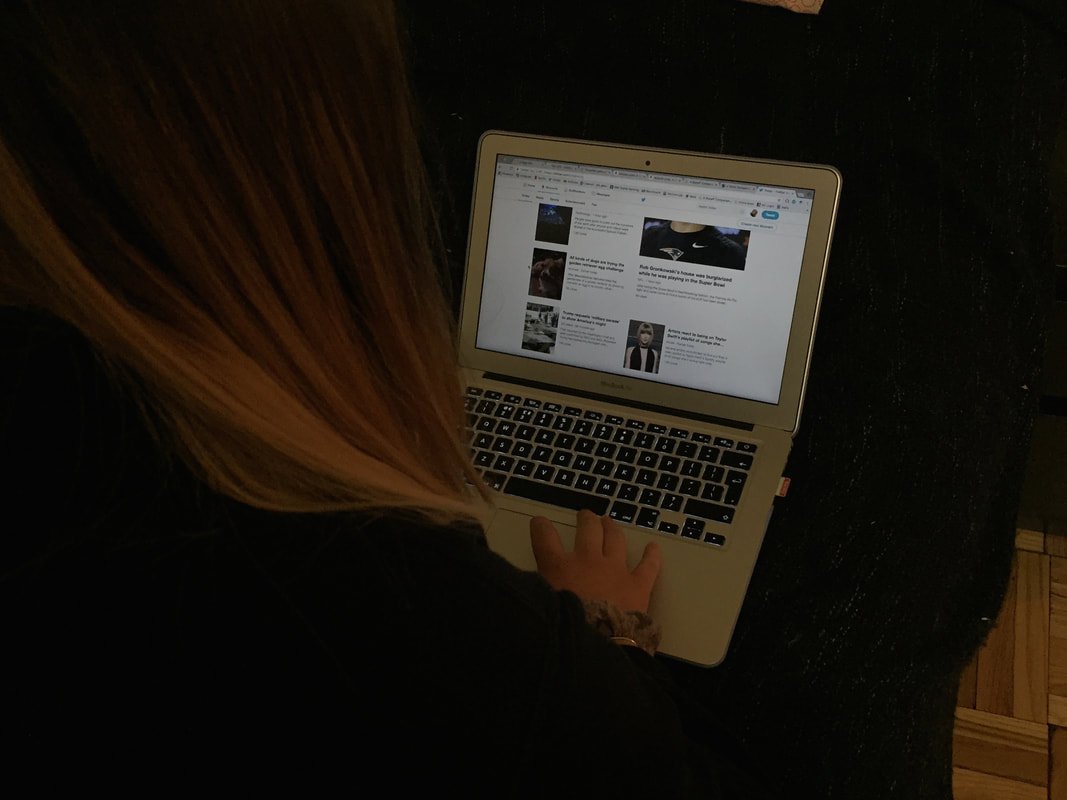|
Which came first: the media coverage or the trending topic? It’s getting harder to determine the answer.
“One can’t exist without the other,” said Jeremiah Patterson, a Digital Manager at the Online News Association and Professor in the American University School of Communication. This is because trending topics are news topics that spoke to people, according to Patterson. The reason certain topics popular and trending is because people want to know more. However, Patterson is skeptical about reporters always covering trending topics on social media, especially in regards to President Donald Trump’s tweets. “I’ve never seen the news cover every little thing so much,” said Patterson. “That’s a huge example of social media determining the news cycle.” One tool that is used to sort through these trending topics are hashtags, which classify social media posts. Hashtags can connect a tweet to larger news story, according to a Pew Research Center Report. This makes it so that the journalist can use shorter language and be more colloquial. According to Katie O’Gorman, a former Marketing & Outreach Coordinator at Double Exposure: Investigative Film Festival, hashtags can help make newsworthy quotes and events easier for the public to understand. “Hashtags helped give understanding and context to the tweets because then people could click on the hashtag and have a better idea of what the quote I tweeted described,” said O’ Gorman. News organizations can expand their audience to potential new followers through hashtags. This can also help them target a specific audience. A Pew Research Center Study concluded that politically polarized groups on Twitter responded specifically to certain hashtags. If an online news outlet wanted to reach a more conservative base, they would use different hashtags than if they were attempting to reach a more liberal base. Scott Talan, a professor in the American University School of Communication, thinks that hashtags and trending topics make journalists jobs easier. “A big problem in journalism today is not finding out your own stories but recovering stories that have been done elsewhere; which is easier and quicker,” said Talan. “What value is that reporter or news outlet adding if they’re simply going to social sources?” But easier doesn’t have to mean worse, according to Lauren Lumpkin, Editor-In-Chief of The Blackprint, a student-run online news publication at American University. Lumpkin said that what’s trending on social media can spark a reporter’s interest to cover a story. “We are all very connected on social media,” said Lumpkin. “A lot of pitches are ‘I saw this thing on Twitter’ or ‘I saw this thing on Instagram.” Lumpkin believes that social media popularity precedes news coverage. Hashtags for social movements, such as #BlackLivesMatter or #OscarsSoWhite make it easier for reporters to track events and coverage of them. “I really like hashtags,” said Lumpkin. “I think starting things on social media make it move so much faster and gain a bigger following.” It’s not just growing a story, hashtags themselves can be used to explain or tell a story. A study in local news conducted by Pew Research Center concluded that people were more likely to use hashtags than hyperlinks in their tweets, and local news outlets used hashtags for both local and national areas of interest. A survey conducted by Pew Research Center when comparing users interaction with photos, URLs and hashtags, determined that hashtags were the only one where the average percent of a users tweets contained the same amount for “all tweets” and “news tweets.” In the context of news, a hashtag can be beneficial for an organization to understand what stories and topics are gaining traction. According to the same Pew study, 86 percent of tweets that included “#Ferguson” related to the events in Ferguson, Missouri. According to O’ Gorman, there are certain times when hashtags are most effective. “For a public and live conference it helped when people were discussing the topics online and wanted to see the latest conversations surrounding them,” said O’ Gorman. As important as they can be to connect readers with newsworthy stories, it’s equally important to not overuse hashtags in a news piece and risk them lessening their impact. “In terms of the way they actually work, they’re very important,” said Patterson. “In terms of the way that we socially talk about them, they are starting to feel a little tired." While Talan describes himself as a supporter of social media and using it in a classroom setting, he doesn’t always favor its use in news. “I think there are limits,” said Talan. “People automatically assume we should do the hashtag and that the hashtag is going to do something, but that’s not always it.” There’s still a lot to learn about social media and it’s impact on the news, according to Patterson, but he predicts that people will continue to watch them both grow together.
0 Comments
|
Aubrey GelpierynAubrey Gelpieryn is a journalist currently in New York. She enjoys writing about music, politics and current events. Archives
January 2021
Categories
All
|


 RSS Feed
RSS Feed